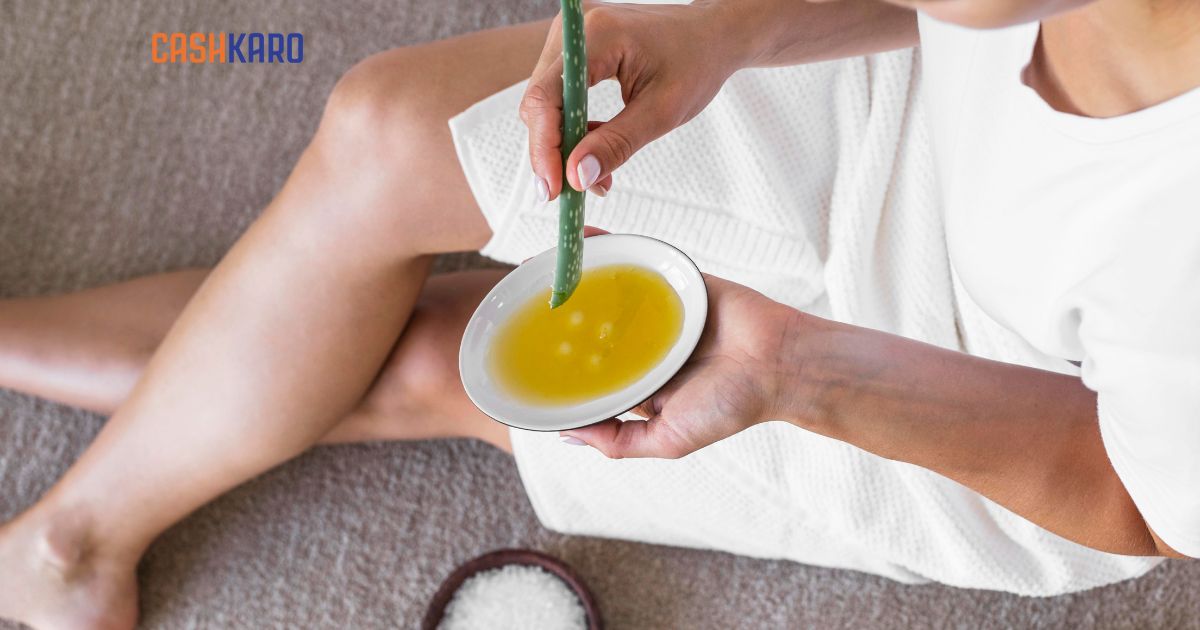Vitamin C also referred to as ascorbic acid, is a water-soluble nutrient that acts as a potent antioxidant. It positively affects your skin’s health and immune system. Vitamin C also helps in enhancing the functioning of collagen synthesis, connective tissues, bones, teeth, and small blood vessels.
Even though the human body cannot produce or store vitamin C, there are multiple sources that provide sufficient intake of the same. It is for this reason that it is essential to consume Vitamin C rich foods. Fruits and vegetables are the highest sources of Vitamin C. Let’s scroll through foods that contain Vitamin C to keep you healthy and enriched.
Here is the top Vitamin C Foods List for you to explore:
1. Broccoli
Broccoli is a cruciferous vegetable that is rich in vitamin C. It is helpful in lowering oxidative stress, improving immunity and decreasing the risk of cancer and heart diseases.
Recommended Serving Size: 1 cup cooked broccoli
Vitamin C Content Per Cup: 102 mg
Other Nutrients:
- Calcium
- Potassium
- Fibre
- Vitamin A
How can you include it in your diet?
You can opt for boiled broccoli as a side dish in your meal or include it in Italian salads.
2. Oranges
The list of fruits rich in Vitamin C majorly comprises of citrus categories. Oranges can impair colorectal cancer cells. Vitamin C infused in oranges also strengthens your immune system to keep you healthy and young.
Recommended Serving Size: 1 medium-size orange
Vitamin C Content Per 1 Orange: 70 mg
Other Nutrients:
- Thiamine
- Folate
- Potassium
- Lutein
- Fibre
How can you include it in your diet?
You can squeeze out the juice of an orange and have it in breakfast. Alternatively, you can eat it as a part of a fruit salad.
3. Chilli Pepper
Chilli peppers are rich in capsaicin, which are responsible for the hot taste of the chilli. Infused with a high content of ascorbic acid, it also helps reduce pain and inflammation.
Recommended Serving Size: 1 green chilli pepper
Vitamin C Content Per 1 Chilli: 109 mg
Other Nutrients:
- Fibre
- Thiamin
- Riboflavin
- Niacin
- Folate
- Iron
- Magnesium
- Phosphorus
- Copper
- Potassium
- Manganese
- Vitamin A, K & B6
How can you include it in your diet?
Chilli peppers can be crushed into red powder to be added to your meals while cooking.
4. Guavas
Native to Mexico and South America, guavas are particularly rich in the antioxidant lycopene and vitamin C. Guavas are also considered a potent source of ascorbic acid that help lower blood pressure and cholesterol levels.
Recommended Serving Size: 1 guava
Vitamin C Content Per 1 Guava: 126 mg
Other Nutrients:
- Niacin
- Vitamin B6
- Folate
- Thiamine
- Riboflavin
- Fibre
- Folic acid
- Potassium
- Manganese
How can you include it in your diet?
Guavas can be added into your diet as a part of a fruit salad for breakfast.
5. Tomatoes
Tomatoes are enriched with vitamin A and lycopene. Lycopene is a powerful antioxidant for the heart. Squeezed tomatoes are more concentrated with Vitamin C than the raw ones.
Recommended Serving Size: 1 glass
Vitamin C Content Per Glass: 120 mg
Other Nutrients:
- Vitamin K
- Potassium
- Folate
How can you include it in your diet?
You can have plain tomatoes or toss them into salads, sandwiches or burgers. Alternatively, you can drink the tomato juice every morning.
6. Parsley
Parsley is a leafy green vegetable that is plant-based. Its high content of vitamins and other nutrients help increase the absorption of nonheme iron that prevents and treats iron deficiency and anaemia. Parsley also works as an antioxidant to reduce heart diseases and improve your heart’s health.
Recommended Serving Size: 2 tablespoons (8gm)
Vitamin C Content Per 8 gm: 10 mg
Other Nutrients:
- Vitamin K & A
- Folate
- Iron
- Myristicin
- Limonene
- Eugenol
- Alpha-thujene
- Flavonoids
How can you include it in your diet?
Add a handful of chopped parsley into a grain salad to make yourself a healthy breakfast.
7. Kiwi
Kiwi has a high and distinctive amount of vitamin C infused in it. Combined with other nutrients, this fruit helps reduce oxidative stress, lowers cholesterol and improves immunity. It also reduces the risk of blood clots and strokes.
Recommended Serving Size: 1 medium kiwi
Vitamin C Content Per 1 kiwi: 71 mg
Other Nutrients:
- Calories
- Protein
- Fibre
- Vitamin A
- Iron
- Potassium
How can you include it in your diet?
Slice the kiwi fruit into pieces and add it to your daily breakfast. You can even keep the skin on to enjoy it even more.
8. Lemons
Lemon is a major source to prevent scurvy with its antioxidant properties. Vitamin C present in lemons clubs with fibres and plant compounds to lower the risk of heart-related diseases. Lemon also acts as a barrier to reducing the browning of food.
Recommended Serving Size: 1 whole raw lemon
Vitamin C Content Per 1 lemon: 83 mg
Other Nutrients:
- Folate
- Potassium
- Calories
How can you include it in your diet?
Lemon can be squeezed over multiple dishes along with the garnish. You can also consume it in the early morning drink.
9. Papayas
Papaya is infused with a high content of Vitamin C. It aids in enhancing memory and has anti-inflammatory effects on your brain. Papaya also reduces the symptoms of Alzheimer and oxidant stress.
Recommended Serving Size: 1 cup (145 gm)
Vitamin C Content Per 145 gm: 87 mg
Other Nutrients:
- Calories
- Carbohydrates
- Fibre
- Protein
- Vitamin A
- Folate
- Potassium
How can you include it in your diet?
Throw in some dices of papaya in your smoothie or yoghurt for breakfast. Consume a freshly cut bowl of papaya before bedtime to promote liver health.
10. Cabbage
Cabbage is an important source of vitamin C, antioxidants, minerals, vitamin K and fibres.
Recommended Serving Size: 1 cup
Vitamin C Content Per Cup: 30 mg (raw cabbage), 60 mg (cooked cabbage)
Other Nutrients:
- Calories
- Protein
- Fibre
- Vitamin K & B6
- Folate
- Manganese
How can you include it in your diet?
You can have raw cabbage in salads or cook them as side dishes.
How Much of Vitamin C Is Good?
The Recommended Dietary Allowance is a reflection of how much of each vitamin should be consumed each day. This index may vary with age, gender and body type. The following is the recommended dosage of the same:
Adults: 70-150 mg daily
Vitamin C Deficiency
Unhealthy diet and stressful lifestyle often lead to a decreased intake of Vitamin C rich foods in India. This, in turn, results in the deficiency of the same leading to hazardous symptoms and diseases. Some of the common symptoms of Vitamin C deficiency are as follows:
- Bleeding gums
- Frequent bruising
- Infections
- Poor wound healing
- Bumpy skin
- Chronic inflammation and oxidative stress
- Weight gain
- Fatigue
- Weak bones
- Damaged skin
- Bright red hair follicles
Severe cases of vitamin C deficiency can also lead to anemia and scurvy.
Vitamin C foods are the key elements to the growth and maintenance of the tissues including collagen. These foods also help keep your bones and teeth strong while promoting proper functioning of your immune system. Fruits and vegetables should become your sole dietary companions to stay rich in vitamin C.




